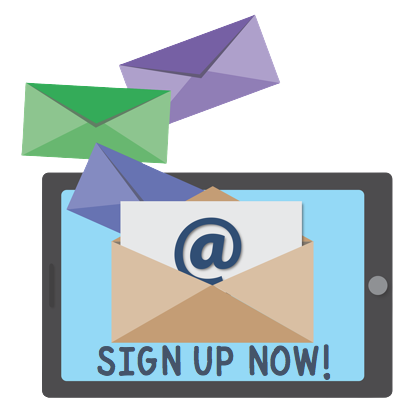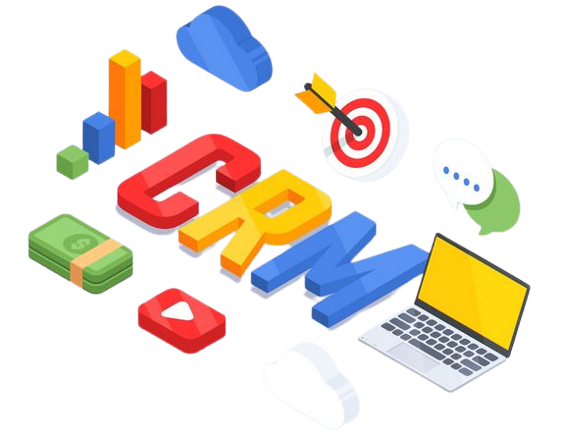
Email is a widely used digital communication channel that allows the exchange of messages and files among users via the Internet. It has evolved as a crucial real-time customer communication tool for both personal and business use and is frequently adopted as a primary mode of communication across multiple industries.
The key advantages of email marketing tactics include:
- Users can send and receive messages and files quickly and easily through emails.
- Users can use emails to communicate with individuals or groups, making it a resourceful communication channel for different purposes.
- Users can keep track of important messages and correspondence through emails as it provides a record of communication history.
- Users can access emails from a variety of devices, including desktops, laptops, and smartphones, making it a convenient communication tool for users on the go.
Therefore, email is a highly effective and widely used communication channel, but it is important to be mindful while using it for real-time customer engagement.
Benefits Of Using Email For Real-Time Customer Engagement

Just like WhatsApp chat or phone calls, an email strategy is also considered a real-time communication channel. There are several benefits to using email for real-time customer engagement.
Direct and Personalized Communication
Businesses can communicate directly with customers through emails and personalize their messages. If you are using CRM integrated with free software contact management, by addressing the customer by name and tailoring the content according to their interests and preferences, businesses can successfully create a highly engaging and personalized experience.
Ability to Send Rich Multimedia Content
Businesses can use email to send a variety of rich multimedia content, such as images, videos, and interactive elements. With such a content variety, businesses can create a more immersive and engaging experience for customers, increasing the likelihood of them taking action.
High Open and Click-Through Rates
Email has some of the highest open and click-through rates of any marketing channel. This is due in part to the direct and personalized nature of email, as well as the ability to track and analyze customer engagement data to optimize email campaigns.
Real-time notifications and updates: Businesses can also send real-time notifications and updates to customers through email automation. These may include order confirmations, shipping updates, and appointment reminders. Email notifications are a great way to keep customers informed and engaged throughout the complete customer journey.
Best Practices For Using Email For Real-Time Customer Engagement

Below are some best practices that businesses can follow to create effective email marketing campaigns that engage customers in real-time and improve the customer experience.
Sending Relevant and Timely Messages
It’s important to send emails that are relevant and timely to your customers. This means sending messages that are personalized to their interests, needs, and behaviors, and that are sent at the right time in their customer journey.
Using Email Personalization and Segmentation
Email personalization and segmentation are key to creating effective email campaigns. Through email segmentation strategies and tailoring your messages to the specific interests and preferences of each group, you can increase engagement rates and improve the customer experience. Several email personalization tools are available in CRM software.
Providing Clear and Concise Calls-to-Action
Your emails should always include a clear and concise call-to-action (CTA) that tells the customer what you want them to do next. Make sure your CTA stands out and is easy to find and use action-oriented language to encourage real-time customer feedback and responses.
Using Responsive Design
Your emails should be designed with a responsive layout that adapts to different screen sizes and devices. This ensures that your emails look great and are easy to read on all devices, from desktops to smartphones.
How To Measure The Success Of Email Engagement Efforts?

Key performance indicators, or KPIs, are metrics that can be used to measure the success of your email engagement strategies. Here are some of the most common KPIs used to measure email engagement and email ROI:
Open Rate
The percentage of recipients who opened your email. This metric can help you understand how well your subject lines are working and how interested your audience is in your content.
Click-Through Rate (CTR)
The percentage of recipients who clicked on a link in your email. This metric can help you understand how engaging your content is and how effective your calls-to-action are.
Conversion Rate
The percentage of recipients who took a specific action, such as making a purchase or filling out a form, as a result of your email. This metric can help you understand how effective your emails are at driving conversions and achieving your business goals.
Bounce Rate
The percentage of emails that were undeliverable and returned to the sender. A high bounce rate can indicate problems with your email list, such as outdated or invalid email addresses.
Unsubscribe Rate
The percentage of recipients who unsubscribed from your email list after receiving your email. This metric can help you understand how engaged your audience is and how well your content is resonating with them.
By tracking these KPIs over time, you can gain insights into the effectiveness of your email engagement efforts and make data-driven decisions about future campaigns.
Using CRM with Email Integration

EQUP is a CRM for small businesses that includes email integration as one of its features. Email integration allows businesses to manage all customer interactions, including emails, from within the CRM platform, providing a centralized location for customer data and communication.
Here are some ways that EQUP CRM with email integration can benefit businesses:
Improved Customer Data Management
EQUP Customer relationship management (CRM) with email integration enables businesses to store all customer communication, including emails, in a single location. This allows businesses to easily access customer data and history, which can help them personalize their interactions and provide better customer service.
Streamlined Communication
With email integration, businesses can send and receive emails directly within the EQUP CRM platform, eliminating the need to switch between different applications. This can help businesses save time and improve communication efficiency.
Automated Email Tracking
EQUP CRM can track email interactions with customers automatically, providing insights into customer behavior and engagement. This can help businesses better understand customer preferences and tailor their communication accordingly.
Customizable Email Templates
EQUP CRM offers customizable email templates that businesses can use to create personalized and branded emails for their customers. This can help businesses save time and ensure consistency across all communication channels.
Email Analytics
EQUP CRM provides analytics and reporting features that can help businesses track email engagement metrics, such as open rates, click-through rates, and conversion rates. This information can help businesses optimize their email campaigns and improve their overall email marketing strategy.
EQUP is a service management CRM with email automation software that provides businesses with a comprehensive solution for managing customer data and communication. By making the best out of this CRM, businesses can improve customer engagement, personalize their interactions, and ultimately drive business growth.